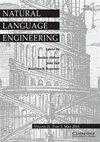人工微调是/否问题回答任务
IF 1.9
3区 计算机科学
Q3 COMPUTER SCIENCE, ARTIFICIAL INTELLIGENCE
引用次数: 0
摘要
目前对是/否问答(QA)的研究主要集中在迁移学习技术和基于变换器的模型上。在大型语料库上训练的模型在类似于是/否QA的任务上进行微调,然后转移捕获的知识来解决是/否的QA任务。大多数先前的研究都使用现有的类似任务,如自然语言推理或提取QA来进行微调步骤。本文从另一个角度出发,假设一个人工的是/否任务可以传递有用的知识来提高是/否QA的性能。为此,我们引入了三个这样的任务,通过调整三个相应的现有任务:候选答案验证、情感分类和词汇简化。此外,我们对BERT模型的三种不同变体(BERT基础、RoBERTa和ALBERT)进行了实验。结果表明,我们的假设适用于所有人工任务,尽管用于微调过程的相应数据集规模较小,这些任务之间存在差异,我们为适应原始任务而做出的决定以及任务的简单性。这为如何处理是/否QA问题提供了另一种视角,这更具创造性,同时也更灵活,因为它可以利用多个其他现有任务和相应的数据集来改进是/否的QA模型。本文章由计算机程序翻译,如有差异,请以英文原文为准。
Artificial fine-tuning tasks for yes/no question answering
Current research in yes/no question answering (QA) focuses on transfer learning techniques and transformer-based models. Models trained on large corpora are fine-tuned on tasks similar to yes/no QA, and then the captured knowledge is transferred for solving the yes/no QA task. Most previous studies use existing similar tasks, such as natural language inference or extractive QA, for the fine-tuning step. This paper follows a different perspective, hypothesizing that an artificial yes/no task can transfer useful knowledge for improving the performance of yes/no QA. We introduce three such tasks for this purpose, by adapting three corresponding existing tasks: candidate answer validation, sentiment classification, and lexical simplification. Furthermore, we experimented with three different variations of the BERT model (BERT base, RoBERTa, and ALBERT). The results show that our hypothesis holds true for all artificial tasks, despite the small size of the corresponding datasets that are used for the fine-tuning process, the differences between these tasks, the decisions that we made to adapt the original ones, and the tasks’ simplicity. This gives an alternative perspective on how to deal with the yes/no QA problem, that is more creative, and at the same time more flexible, as it can exploit multiple other existing tasks and corresponding datasets to improve yes/no QA models.
求助全文
通过发布文献求助,成功后即可免费获取论文全文。
去求助
来源期刊

Natural Language Engineering
COMPUTER SCIENCE, ARTIFICIAL INTELLIGENCE-
CiteScore
5.90
自引率
12.00%
发文量
60
审稿时长
>12 weeks
期刊介绍:
Natural Language Engineering meets the needs of professionals and researchers working in all areas of computerised language processing, whether from the perspective of theoretical or descriptive linguistics, lexicology, computer science or engineering. Its aim is to bridge the gap between traditional computational linguistics research and the implementation of practical applications with potential real-world use. As well as publishing research articles on a broad range of topics - from text analysis, machine translation, information retrieval and speech analysis and generation to integrated systems and multi modal interfaces - it also publishes special issues on specific areas and technologies within these topics, an industry watch column and book reviews.
 求助内容:
求助内容: 应助结果提醒方式:
应助结果提醒方式:


